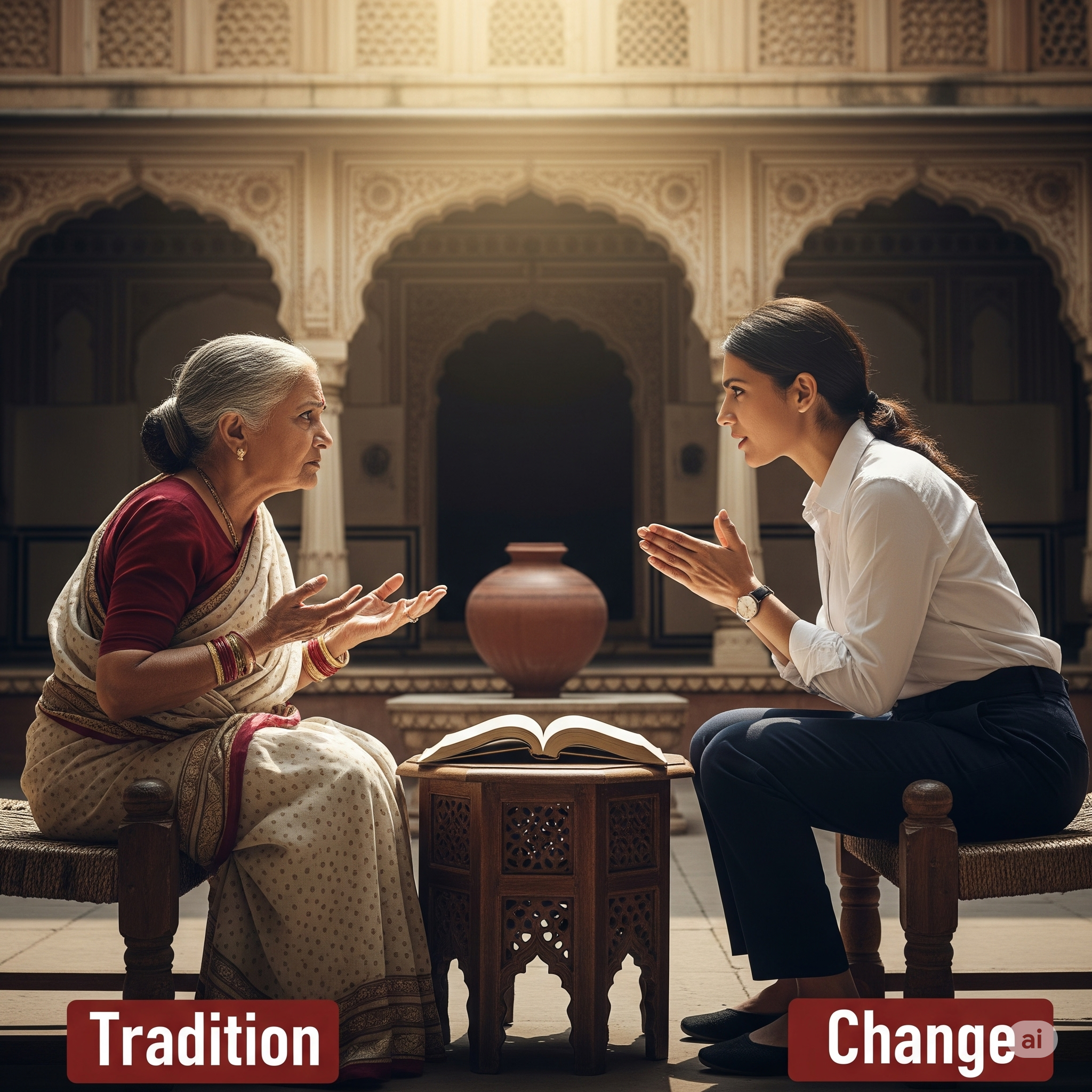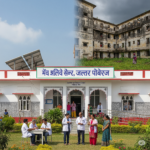
Philosophical Disputes on Gender Roles: Tradition vs. Change in Uttar Pradesh
- admin
- August 12, 2025
- Philosophy, Uttar Pradesh
- 0 Comments
Balancing Cultural Norms and Modern Aspirations in India’s Most Populous State
Lucknow – Gender roles in Uttar Pradesh are at the center of an ongoing philosophical and societal debate, where deeply entrenched traditions often clash with modern aspirations for equality. While the state has seen significant strides in women’s empowerment, with initiatives aimed at increasing education and employment opportunities, challenges remain in dismantling traditional norms that restrict gender roles. Recent data and government efforts paint a complex picture of progress and resistance.
Traditional Perspectives: A Legacy of Patriarchy
1. Cultural Norms Rooted in Tradition
- Family-Centric Roles: Women in Uttar Pradesh have traditionally been seen as custodians of family honor, with their roles often confined to domestic responsibilities.
- Patriarchal Expectations: Concepts like izzat (honor) dictate behavior, particularly in rural areas, where deviations from traditional norms can lead to social ostracism.
2. Gender Bias in Social Structures
- Marriage Practices: Arranged marriages dominate the state, with NFHS-5 data indicating that 85% of marriages are still arranged, reflecting the prioritization of family and community over individual choice.
- Workforce Participation: According to the Periodic Labour Force Survey (2021-22), only 18% of women in Uttar Pradesh are part of the labor force, significantly lower than the national average of 25%.
Modern Challenges and Resistance
1. Education and Empowerment
- Positive Trends: Female literacy in Uttar Pradesh has risen from 57% in 2015-16 to 63% in 2020-21 (NFHS-5), driven by initiatives like Beti Bachao, Beti Padhao and the state’s Mission Shakti program.
- Impact: Over 1.5 crore women have benefited from self-defense training and leadership programs under Mission Shakti.
- Challenges: Despite progress, dropout rates among girls remain high in secondary education, particularly in rural areas where families prioritize early marriage over schooling.
2. Employment Gaps
- Limited Representation: Women account for less than 10% of leadership roles in corporate and public sectors across the state.
- Barriers: Traditional norms and lack of childcare facilities continue to discourage women from pursuing careers.
Government Efforts to Bridge the Gap
1. Mission Shakti
- Launched in 2020, this program aims to empower women through skill development, education, and safety initiatives.
- Achievements:
- Over 2 lakh women received financial assistance for starting small businesses.
- The program has established 700 women police stations, improving safety and access to justice.
2. Reservation in Panchayats
- The state government reserves 33% of seats in Panchayati Raj institutions for women, encouraging political participation.
- Outcome: As of 2023, women account for 43% of elected representatives in village councils, a significant increase compared to previous years.
3. Ujjwala Yojana
- The distribution of free LPG connections under the Pradhan Mantri Ujjwala Yojana has reduced the burden of traditional cooking methods, allowing women more time for education and work.
Controversies and Setbacks
1. Honor-Based Violence
- Crimes related to gender roles, such as honor killings, continue to plague the state.
- NCRB Data: Uttar Pradesh recorded 28 honor killings in 2022, the highest in India.
2. Resistance to Interfaith and Inter-Caste Marriages
- Legal Impediments: Anti-conversion laws have added hurdles for interfaith couples, with women often facing societal and familial backlash for such unions.
3. Workplace Discrimination
- Despite policies encouraging female workforce participation, gender biases persist in hiring practices, especially in rural enterprises.
Public Opinion and Activist Voices
1. Sociological Insights
Dr. Anjali Verma, a gender studies expert at Lucknow University, explains, “While initiatives like Mission Shakti have empowered women to step out of traditional roles, societal attitudes remain a significant barrier. True progress will require sustained efforts to change mindsets.”
2. Grassroots Activism
Organizations like Mahila Samakhya are actively working in rural Uttar Pradesh to promote gender equality through education and legal awareness campaigns.
Looking Ahead: Recommendations for Change
- Strengthen Legal Protections
- Expand laws to safeguard women from violence and discrimination in both public and private spheres.
- Increase Access to Education
- Provide incentives for families to keep girls in school, particularly in rural areas, through scholarships and free transportation.
- Enhance Economic Opportunities
- Promote skill development programs tailored to women, focusing on emerging sectors like IT and green industries.
- Encourage Male Participation
- Involve men in gender sensitization programs to foster shared responsibilities within households and workplaces.
Conclusion: A Journey of Transformation
The philosophical debate on gender roles in Uttar Pradesh is far from resolved. While tradition provides a sense of continuity and stability, the growing demand for equality reflects the aspirations of a modernizing society.
As the state navigates this critical juncture, balancing respect for cultural heritage with the need for progressive change will determine whether Uttar Pradesh can achieve true gender equality in the years to come.


